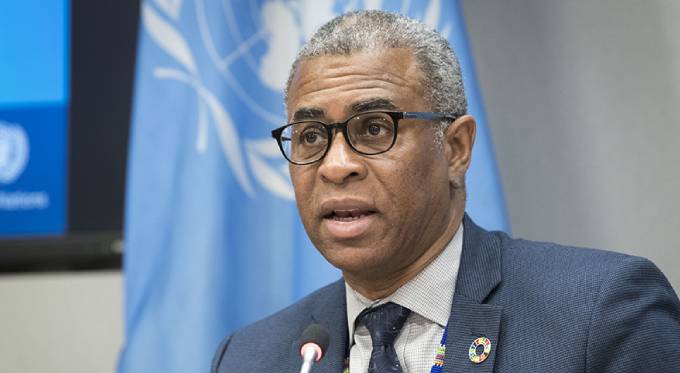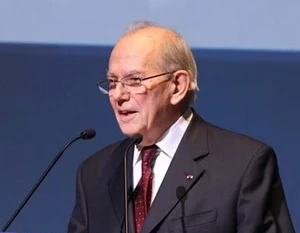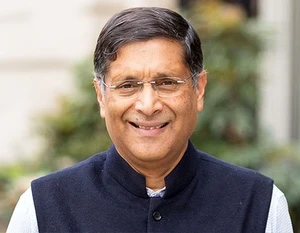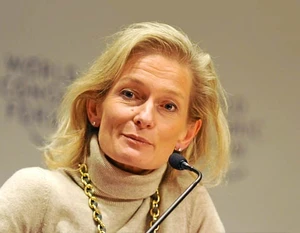
Elliott Harris is a distinguished member of the United Nations, having been appointed by the UN Secretary-General Antonio Guterres to be the Assistant Secretary-General for Economic Development and Chief Economist for the UN Department of Social Affairs. He has a wealth of knowledge in Environmental, Social & Geopolitics (ESG) - including reducing poverty, negotiating financial arrangements and sustainable economic development – and International Relations and Politics, all gained over a 34-year long career in International Economics.
Born in the Bahamas and raised in Trinidad and Tobago, Elliott went to Georgetown University, Washington D.C, where he gained a BSc in German, Russian and Political Science, and then obtained a further degree in Economics at the University of Kiel, Germany, and an Advanced Studies Programme in International Economic Policy at the Kiel Institute of World Economics. From early on in his life, Elliott was exposed to the policies and economic situations of different countries, setting him up on his long and successful career. Prior to his work in the UN, Elliott gained experience within the International Monetary Fund as a macroeconomist working with Francophone African and Asian countries. Not only was he responsible for development related policy issues, Elliott was also the IMF’s Special Representative on Aid effectiveness, and was the Mission Chief in Togo, Chad and Guinea, responsible for negotiating financial arrangements.
Before his appointment as Assistant Secretary-General for Economic Development and Chief Economist for the UN, Elliott first joined the UNEP’s Senior Management Team in 2013 as Director of the New York Office and Secretary to the Environment Management Group. Having proven his worth in one of the most renown organisations in the world, in 2015 Elliott was then promoted to Assistant Secretary-General and Head of the New York Office on the United Nations Environment Programme.
There are very few individuals who possess the expertise and experience that could match up to Elliott Harris’. A passionate speaker, Elliott is not afraid to question the norms we have created and has recently been advocating to measure the value of nature, in the same way we would measure economic progress, in order to increase the biodiversity issues we are facing due to deforestation and the increase in the number of houses being built. Using his extensive knowledge from his many years working on Economic growth, strategy, and stability, Elliott is able to advise organisations on solutions which align with their strategic goals, whilst also benefitting the economic progression of today’s society. Do not miss your chance to hire one of the most revered economists of our day.
Growth, Globalization, and Geopolitics: How Effective Can National Economic Policy Be? As a leading expert on the global economy and sustainable development and the former chief economist for the United Nations, Elliott Harris has advised government officials and business leaders at the highest levels on macroeconomic processes, policies, and development, as well as the impact on their organizations. In this talk, Harris discusses trade as the engine for economic growth and whether the current framework for global trade can continue indefinitely, explains the shortcomings of current approaches to trade as a source of growth, touches on the role of digitalization today and in the economic future, points to some of the geopolitical factors that influence market outcomes, and ties all of these insights together to offer valuable insights for how organizations can adapt their strategies, operations, and advocacy to the changing world around them.
Climate Change and Sustainability: How Nature and Business Can Profit Together. What is the value of nature as it relates to economic growth? As former UN chief economist Elliott Harris shares, measuring the value of nature is just as important in assessing progress as measuring the economic value of the goods and services produced — if not more important. The effects of climate change extend far beyond the environment and have social and economic implications with the potential to shake up society in adverse ways if left unresolved. The same is true of biodiversity loss. In this talk, Harris examines the risks that environmentally negligent practices pose to the world and analyzes the limits that climate change sets on economic growth and social development. In addition to the risks, Harris points out the many important ways in which organizations can benefit directly and indirectly should they account for nature and sustainability in their business strategies, and offers a framework by which companies can identify how they can operate in a way that ensures that nature profits — and so do their businesses.
Beyond GDP: A New Paradigm for Governments and Private Enterprise. Global economics expert Elliott Harris leads a compelling session that will spur audiences to rethink the pros and cons of using the gross domestic product as the measure of economic value and progress, and its impact on their businesses and society. Previously the United Nations’ chief economist, Harris offers a wide-ranging overview of GDP and its role as an economic metric, outlines its weaknesses and limitations, highlights its impact on policy, and illustrates why we must measure beyond GDP to get the most accurate read on current economic performance and how governments and organizations can plan for future growth and prosperity. Harris pays special attention to how environmental, social, and governance principles will intersect with more nuanced measurements of economic activity, and provides guidance for how organizations can integrate these aspects into their strategic business planning while contributing to sustainable development — both domestically and globally.
- 2018 - Assistant Secretary-General for Economic Development/Chief Economist, UN
- 2015 - Head of UNEP New York Office/ Head of EMG Secretariat, UN
- 2013 - Director, New York Office/Head EMG Secretariat, UN
- 2010 - Assistant Director Strategy, Policy and Review Department, IMF
- 2008 - IMF Special Representative to the UN and Asst. Director, Strategy and Policy Review Department, IMF
- 2006 - Chief, Development Issues Division, IMF
How to hire Elliott Harris
Contact the Champions Speakers Agency to provisionally enquire about hiring Elliott Harris for your next event, today. To get in touch, simply call an official booking agent on 0207 1010 553 or email us at [email protected] for more information.
** We do NOT accept requests for autographs, signed merchandise, fan mail, birthday messages or any other non-commercial contact with the speakers or acts. Each speaker on the website may not have necessarily worked with Champions in the past but are known to perform such engagements within the industry.








